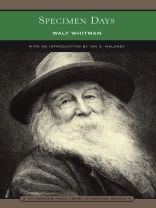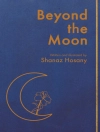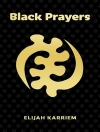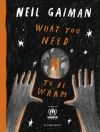Walt Whitman’s Specimen Days, published in 1882, provides an extraordinary picture of an aging poet reassessing the path of his long life, one intrinsically linked with the trajectory—and traumas—of the nation he cherished so deeply. Its diary-like entries, is a prose compilation of a life lived richly and in the service of others, as well an enduring portrait of a monumental writer. Specimen Days reveals the remarkable course of Whitman’s life and accomplishments, starting with his boyhood spent roaming the coast of Long Island, to his days as a writer and observer of the cities of New York and Brooklyn, to his volunteer work as a Washington field nurse during the Civil War, and finally to his serene nature writings and travel diaries as an older man. Whitman’s book of memoriesresounds with striking sections on war, nature, people, and travel. Composed by arguably the finest and most original of American poets, Specimen Days is an underappreciated autobiographical masterpiece by one of America’s most important writers of any generation.
लेखक के बारे में
Walt Whitman was born in West Hills, Long Island, on May 31, 1819. He was the son of a radical freethinking carpenter and a devout homemaker who imbued his son with a profound reverence for the American spirit. Before embarking on his career as a poet, Whitman worked as a schoolteacher, builder, journalist, fiction writer, and printer. In 1846, he became editor of the Brooklyn Eagle, one of the numerous positions he held in publishing during his life. Throughout the Civil War, Whitman worked as a government clerk and also volunteered in field hospitals where he tended to both Union and Confederate soldiers. After the war, Whitman’s standing as a poet grew continuously. In 1873 he took up permanent residence with his brother in Camden, New Jersey, where he famously spent the rest of his days, welcoming the many pilgrims who came to see the Old Gray Poet. He died on March 26, 1892. Whitman’s life is a “rags to riches” story for the literary ages: a journeyman writer and editor with only an elementary-school education, he is now regarded as the godfather of American poetry.












